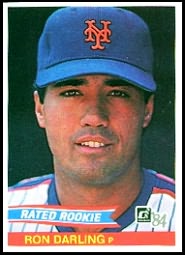As was already mentioned , w/ HS pitcher recruiting at the D1 level it starts with velocity numbers . Basically, the magic number is 85 on the left side. 88 on the right side. That's during the recruiting process. Which means if your son is a righty Junior he needs to be at 88 mph on the gun in High School. Period. And the ivy league is no different.
Also, the Ivy is it's own specialized unique maze of recruiting rules and timelines and it is EXTREMELY difficult to actually land a roster spot at an Ivy.
My son got real close with an ivy school during his recruitment. 'Close' means that the baseball dept ran him through as a 'pre read' through admissions and was deemed academically 'Likely to be accepted' .
That is important for parents and players to know. The Ivys cast a real 'wide net' in recruiting. They talk to everybody . So, a piece of unsolicited suggestion/ advice here based on my personal experience:
You are NOT a serious recruit at an Ivy school unless you have been ran through admissions as a 'pre read' . I'm not talking about the RC saying ' Your GPA and test scores look good. You look like a good fit'.
No, I want to be crystal clear. A pre-read is when The baseball dept vets you through admissions via the departments academic liaison. This is not a 'likely letter ' that is different. The pre read for my son took about 48 hours. They will ask for official HS transcripts and standardized test score results. Once you are deemed ' likely to be admitted' then admissions has signed off on you for the baseball guys to move forward recruiting the player.It then basically becomes a straight baseball deal. Meaning that if they want you and you want them...it's done.
So, no pre-read? You are NOT close.
I'm sort of trying to hammer this point home because players and parents spend WAY too much valuable time in the recruiting process chasing schools they will probably never get into academically or are not the right fit for the school from the baseball side.
When a school wants a player. They make their intentions clear. There is no ambiguity. They are aggressive and you KNOW they are on you.
While I'm already on a rant here, let me add another tidbit of info: If your son is a serious 'recruit' at a school and he is a 2018 or 2017 he is receiving regular phone calls , texts from the RC.
No regular phone calls/texts? You are NOT a serious recruit at that school.
RC's email 'Follows'.....They use the phone with serious prospects / recruits.
Ivy league RC phoned / texted my son weekly , bi-weekly throughout his Junior year in HS . And this was way before he did the pre-read .
It's extremely important for parents / players to learn how to define REAL interest. Most do not. There are several HSBBWEB members here that helped me with that. I will always be grateful to those guys
Anything I type here is just my opinion based on my own personal experience.

